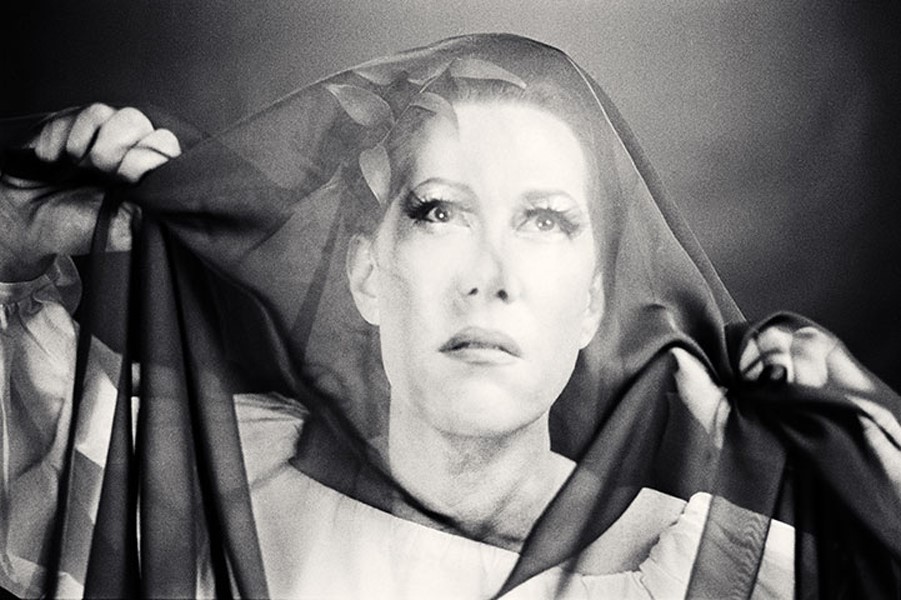It looks like another one of the city’s shadowy artistic demoiselles is about to take a turn in the limelight. If anyone is the talk of New York City at the moment it is Justin Bond.
It looks like another one of the city’s shadowy artistic demoiselles is about to take a turn in the limelight. If anyone is the talk of New York City at the moment it is Justin Bond. A tall, blond, transgender cabaret signer, Bond worked his way up through the San Francisco and New York performance undergrounds as part of a duo lounge act called Kiki and Herb. The act, which centered around Bond’s character Kiki, an aging, bitter, alcoholic singer who was as poignant, raucous and funny as she was tragic, developed a cult and critical following which led them to Carnegie Hall and a stint on Broadway, earning Bond a Tony nomination. Now he has a much-awaited debut album coming out tomorrow, and he’ll be performing his new solo show at the Bowery Ballroom to celebrate. Recently, Bond received a glowing critique in The New Yorker that called him the greatest cabaret artist of his generation. His act is witty, raunchy, confessional, political, and redemptive – just like good cabaret ought to be. It’s also full of personal tales of life, love, art, and identity that speak to the struggles of becoming fully human in this world, particularly if it’s not clear what invisible box you fit into, and that offer a cathartic peace and connection to many in the crowd. Last week, just a few days ahead of the release and show, I was able to ask Justin a few questions.
Can you tell us about why you chose the title Dendrophile for your new album?
A Dendrophile is a person who gets an erotic charge out of nature. While writing the songs for this record I spent a lot of time on a fallen log in a ravine in Tennessee. For me the idea of honoring nature not only includes dirt, trees, moss, sky, etc., but also the unique nature within each of us as individuals. I'm most turned on by people who I believe are exploring their own nature and who are willing to share their discoveries with others.
You’ve written that for you there is “no opposite sex, only identity and desire.” Can you expand on what you mean by that?
I believe that sexuality and sexual desire are created by a phantasm related to intimacy with another person and how you desire to be perceived within a close physical exchange or scenario which plays out within a constructed and, hopefully, consensual dynamic. Gender identity comes from how you desire to be perceived within your community or social setting. So even if the gendered body is used for fulfillment of certain desires it doesn't necessarily dictate what those desires are.
What is it you love most about the cabaret?
I love being in a room full of people who are drinking and enjoying music who are willing to let their guard down and give in to whatever they are feeling or experiencing in the moment, knowing that the moment can never be repeated or recaptured.
Can you remember the first time you were exposed to cabaret and what impact it had on you?
I think I first knew what cabaret was by seeing nightclub scenes in Fred Astaire and Ginger Rogers movies, most likely Follow the Fleet which I saw on my grandparents’ black and white television one Sunday after church when I was very young. I was blown away by the glamour, energy and whimsy of the entire spectacle. As a small-town trans-child it seemed to me to be the epitome of sophistication. I thought, "This is what I want to do!"
Can you tell us about any future projects you’re working on?
My first novella-length memoir, Tango, My Childhood Backwards and in High Heels is going to be published by The Feminist Press in September and my fragrance Galli, a transcent, will be introduced by the french perfume house Etat Libre D'Orange this Fall.
